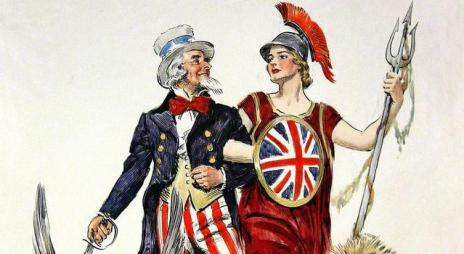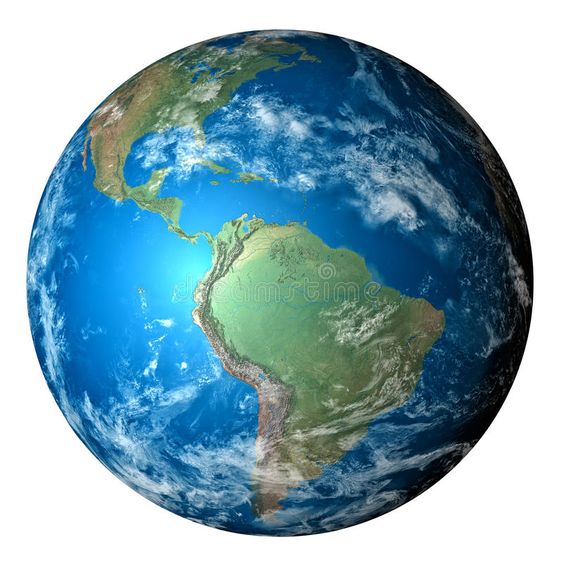
Today the democratic cornerstone is being undermined by the actions of conservative-minded political parties in both countries– America’s Republican Party and Britain’s Conservative and Unionist Party.
By Tom Arms
The Anglo-American special relationship is growing closer—but not for the right reasons.
It has been founded on shared values, history, legal structures, trade, military and intelligence links and an unwavering belief in the democratic institutions which underwrite all of the above.
Today the democratic cornerstone is being undermined by the actions of conservative-minded political parties in both countries– America’s Republican Party and Britain’s Conservative and Unionist Party.
They have veered away from the responsibilities of political stewardship to the naked pursuit of power at all costs and tied their fortunes to personalities rather than policies. Both parties have adopted standard bearers (Donald Trump in America and Boris Johnson in the UK) who have become inveterate liars and slanderers.
Of course, in America, everything is bigger and better. And in the case of Donald Trump and his falsehoods, the former president is definitely in the world beater category. According to analysts at the Washington Post, he issued more than 30,000 lies during his presidency. And, of course, there is the “Big Election Lie” with which he is attempting to undermine the electoral system.
Boris Johnson is no slouch in the falsification stakes. But he goes more for quality than quantity. His Brexit lies were notorious. And as Prime Minister he regularly stands before the dispatch box of the House of Commons and rolls out statistics which Britain’s own Office of National Statistics immediately denies. But, of course, his most recent big lie was that there were no parties at 10 Downing Street during covid lockdowns. The police are currently investigating 12 such incidents.
The problem is that under parliamentary rules, MPs cannot call another member of parliament a liar; at least not in the precincts of the Palace of Westminster – To do so is a grave offence and results in temporary expulsion of parliament. Ian Blackford, leader of the Scottish Nationalist Party in the House of Commons, found this out to his cost.
Slander is also now a common tool of both party leaders. Boris Johnson recently stood in Parliament and accused Keir Starmer, Leader of the Opposition, of refusing to prosecute notorious celebrity paedophile Jimmy Saville. In both Parliament and Congress speakers are protected by absolute privilege which means that they can say whatever they want without fear of prosecution for libel or slander. The result was that Keir Starmer was cornered by an angry mob shouting “paedophile protector.”
Again, Boris is a long way behind Donald Trump in the title for world’s greatest slanderer and generally most offensive ever politician. Prominent on the ex-president’s target list are Joe Biden, both Clintons, Ted Cruz, all the Bushes, Senator John McCain, Mexicans, women, disabled people, Muslims, Republicans who have opposed him, Republicans who have not given him unflinching support, anyone who refuses to believe he won the 2020 elections, all Democrats and anyone anywhere who has dared to issue a discouraging word about Donald Trump.
If one dares to point out Trump’s lies then they risk being subjected to threats of violence and even death by the violent faction of his army of supporters, which brings me to another similarity and difference between the two systems. The similarity is that the political parties behind Johnson and Trump have tied their political futures to the success of their leaders. This is because both have somehow managed to strike a rich vein of discontent with their respective voters.
Support for Trump or Johnson has spelled high office for their supporters. In the case of America, prominent Republican politicians who once refused to speak with Trump are now fawning acolytes. In Britain the public love affair with the scruffy old Etonian with the unruly blonde mop led to a whopping 86-seat Conservative majority in the House of Commons.
Now for the difference, the mechanism for removing a Conservative British prime minister is much easier than America’s impeachment process. It is called a “Vote of No Confidence.” If the House of Commons pass a vote of no confidence in Boris Johnson then he can either call an election or ask the Queen to find another prime minister. Either way, he will be leaving 10 Downing Street.
To secure a no confidence vote in a Tory prime minister, 54 conservative MPs must submit letters calling for his resignation. So far a number have been deposited with the 1922 Committee which monitors the issue. Exactly how many is a secret. A number of MPs have said they are waiting for the results of the police inquiry into the Downing Street parties.
But before that they said they were waiting for a report from civil servant Sue Gray. It is more likely that the big test will be local elections on 5 May. Johnson was chosen Conservative Party leader because he was seen as a vote winner. If the conservatives lose in May, then his support will vanish.
As for Trump, the skies are turning black with the wings of chickens coming home to roost. But the property developer turned TV celebrity turned president turned ex-president has a history of avoiding the long arm of American law. If he succeeds again then The Donald is current hot favorite to return to the White House.
- Vladimir Putin must be as happy as a five-year-old who has just inherited a sweet shop. Statesman after stateswomen is trekking to Moscow to implore him not to plunge Europe into war by invading Ukraine. If the Russian leader’s intention was to put himself and Russia at the center of the world stage then he has succeeded. At the top of this week’s visitors’ list was French President Emmanuel Macron who spent five hours talking geopolitics across a table the size of a football field. Macron was in Moscow with several hats: President of France, current President of the European Council, a rabid Europhile, and a candidate in the 2022 presidential elections. He needed results for the sake of European peace, EU unit and his campaign. At the post-summit it seemed as if Macronian diplomacy had worked. The French president said he had offered “concrete security guarantees” and Putin confirmed that they were worth exploring.” However, neither side was willing to elaborate on what the guarantees were? And almost as soon as Macron was on the plane for Paris via Kiev, Putin was rattling his sabers again.
- Much has been made of splits within NATO. Highly exaggerated. If anything the renewed Russian threat has reminded the Alliance of its primary purpose and revived old ties. There are differences of emphasis. France, Italy, Germany and the Netherlands prefer a more diplomatic route while Britain, the US and the East Europeans are pushing for more of a military-deterrent backed up with the threat of tough sanctions. The most distressing response has been the Germans. Angela Merkel was noted as the leader of Europe and a stateswoman who understood the mind of Vladimir Putin. The EU and NATO were hoping that the new chancellor, SPD leader Olof Scholz, would fill her shoes. No such luck. He is too busy prevaricating and procrastinating to play much of any role. At the heart of Germany’s problems are its history and its dependence on Russian oil and gas. Germany invariably takes a more pacifist line as it is keen not to disturb the lingering ghosts of its militaristic history. On top of that, it receives about half of its energy from Russia. This figure is set to increase exponentially if and when the Nordstream2 gas pipeline comes on stream. At the post Biden-Scholz press conference this week, Biden was keen to report that Germany and the US are in “lockstep” over Ukraine and that Nordstream2 was shelved. Scholz, however, was reluctant to announce an end to the pipeline. The future of Nordstream2 and Ukraine has divided German business and the members of Scholz’s SPD party. They are all Europhiles and Atlanticists, but they are also reluctant to impose sanctions which could hit Germany as hard—if not harder—than they hit Russia.
- Biden appears to have achieved rare bipartisan support over Ukraine. Democrats and most Republicans are outdoing themselves in their anti-Russian statements. Biden has repeatedly said that a Russian invasion is “imminent”. He is particularly worried about military manoeuvres in Belarus and the Russian navy blocking Ukrainian access to the Black Sea. Americans in the Ukraine have been told to leave “as things could go crazy quickly.” Biden has sent defensive equipment to Ukraine and troops to East European NATO members. But he is adamant that the US will not militarily support Ukraine if it is invaded. He said: “That’s a world war when Americans and Russians start shooting at one another.” The US president is putting his eggs in the sanctions basket. To ensure the widest possible support within the Alliance, US diplomats are busy pressuring oil and gas producers in Qatar, the UAE and Saudi Arabia to divert supplies to Europe should Russia turn off westward bound taps.
- British Prime Minister Boris Johnson is the most bellicose member of the Alliance. This can be partly attributed to Britain’s traditional anti-Russian stance, partly to Johnson’s acute domestic problems and partly to Johnson’s efforts to be taken a serious player at a time when most of the rest of the world is treating him as a bad joke. Johnson hopes that “strong deterrence” and “patient diplomacy” will prevent a war. To that end Britain has supplied anti-tank weapons, helmets, body armour, combat boots and 350 troops. Both Foreign Secretary Liz Truss and Defence Secretary Ben Wallace have been dispatched to Moscow for talks. The talks between Truss and her Russian counterpart Sergei Lavrov were a total failure. Lavrov said UK-Russian relations were at a low point and Ms Truss accused the Russian foreign secretary of “Cold War rhetoric.”
- Lurking in the Ukrainian shadows is China. What will Beijing do if Russia invades Ukraine? Relations between Moscow and Beijing currently rival the halcyon days of Stalin and Mao. The Chinese supported Putin’s 2014 annexation of Crimea and eased Western-imposed sanctions by becoming Russia’s biggest trading partner. The two countries also recently signed an agreement for staged increases in military cooperation. Chinese Foreign Minister Wang Yi has called Putin’s current Ukrainian claims “legitimate”. But that is as far as he is prepared to go at the moment, and he has tempered this diplomatic support with a call for all sides to step back from the brink. As a sign of support for the Russian leader, President Xi Jinping held a mini-summit with the Russian leader on the fringes of the opening ceremony for the Beijing Winter Olympics. Chinese officials were quick to stress that it was the first face-to-face summit Xi has had with a foreign leader for two years. Details of the discussion were not disclosed, but it is likely that the two men discussed ways that China could further ease Western economic sanctions if they are imposed in the wake of a conflict. But China knows it must be careful as help for Russia could easily result in increased sanctions against Beijing as well.
[author title=”Tom Arms ” image=”https://sindhcourier.com/wp-content/uploads/2021/05/Tom-Arms-Journalist-Sindh-Courier.jpg”]Tom Arms is foreign editor of LDV, and author of “The Encyclopedia of the Cold War” and the recently published “America Made in Britain.”[/author]
